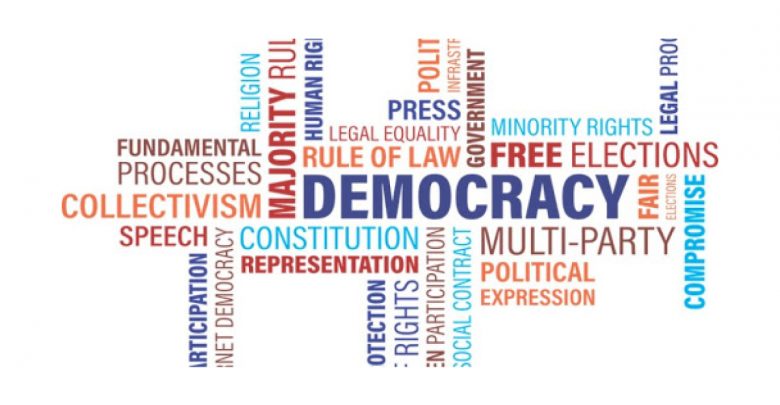A Deeper Look at Electoral Systems' Role in Political Outcomes
These systems play a pivotal role in shaping political outcomes, influencing everything from the composition of legislatures to the policies pursued by governments.

The Crucial Role of Electoral Systems in Shaping Political Outcomes
Electoral systems are the bedrock of any democratic society. They serve as the fundamental framework through which citizens express their preferences and choose their representatives. These systems play a pivotal role in shaping political outcomes, influencing everything from the composition of legislatures to the policies pursued by governments. In this comprehensive exploration, we will delve into the multifaceted role of electoral systems in shaping political outcomes.
Defining Electoral Systems
Before delving into their role, let's define electoral systems. An electoral system encompasses the set of rules and procedures that govern how elections are conducted, votes are cast, and seats are allocated. These systems vary across countries and can significantly impact the representation and stability of governments.
Proportional Representation vs. First-Past-the-Post
One of the most critical distinctions in electoral systems lies in the choice between proportional representation (PR) and first-past-the-post (FPTP) systems. PR systems allocate seats in direct proportion to the number of votes each political party receives, promoting a diverse and multi-party political landscape. In contrast, FPTP systems award the candidate with the most votes in each district a seat, often leading to a two-party or dominant-party system.
Representation of Diversity
PR systems tend to be more inclusive, ensuring that a broader spectrum of political ideologies and voices are represented in the legislature. This fosters diversity and can provide a platform for marginalized groups, leading to more equitable political outcomes.
Stability and Governance
FPTP systems often lead to majoritarian governments with single-party dominance, which can provide stability and strong governance. However, PR systems tend to result in coalition governments where multiple parties must work together. While this can lead to a more fragmented political landscape, it can also promote compromise and balance of power.
Voter Behavior and Turnout
The electoral system can influence voter behavior. In FPTP systems, strategic voting is common as voters may choose a candidate they don't fully support to prevent a worse outcome. In PR systems, voters can cast their ballots more sincerely, which may lead to higher voter turnout.
Impact on Small Parties
PR systems are more favorable to smaller parties, as they have a better chance of winning seats. FPTP systems can marginalize smaller parties and discourage their participation.
Gerrymandering and Its Consequences
Electoral systems also intersect with the issue of gerrymandering, the practice of redrawing electoral district boundaries to favor one party over another. Gerrymandering can distort the will of the voters, resulting in skewed political outcomes. It has a particularly pronounced impact in FPTP systems, where district boundaries matter significantly.
Partisan Advantage
Gerrymandering can be used to create safe districts for one party, ensuring their continued electoral dominance. This can lead to disproportionate representation and undermine the principle of equal representation.
Policy Implications
Gerrymandered districts can lead to politicians catering to extreme ideologies within their party to secure their base, which can contribute to political polarization and hinder compromise on important policy issues.
Electoral Reforms and Their Impact
Countries periodically revisit their electoral systems through reforms aimed at improving representation, accountability, and fairness. These reforms can have a profound impact on political outcomes.
Mixed Electoral Systems
Some countries adopt mixed systems, combining elements of both PR and FPTP. For example, Germany uses a mixed-member proportional system, which aims to strike a balance between strong government and representation of diverse views.
Ranked-Choice Voting
Ranked-choice voting eliminates the need for strategic voting by allowing voters to rank candidates in order of preference. This can lead to more consensus-based outcomes and encourage candidates to appeal to a broader range of voters.
Electoral Thresholds
Many PR systems include electoral thresholds to prevent the proliferation of small parties. Setting the threshold at an appropriate level can help maintain political stability while still ensuring diversity.
While electoral systems play a crucial role in shaping political outcomes, they are not without challenges and controversies. It's essential to consider these challenges and opportunities for improvement to enhance the effectiveness and fairness of electoral processes further.
Disproportionate Outcomes
One of the criticisms often associated with FPTP systems is the potential for disproportionate outcomes. In such systems, the party that receives the most votes may not necessarily win the majority of seats in the legislature. This discrepancy can lead to a sense of disillusionment among voters who feel their votes did not translate into effective representation.
Voter Turnout
The design of electoral systems can also affect voter turnout. Some systems, like compulsory voting in Australia, mandate that citizens participate in the electoral process, which can lead to high turnout. Conversely, in voluntary voting systems, the turnout can vary significantly, impacting the legitimacy of the elected government.
Minority Representation
Certain electoral systems may struggle to ensure adequate representation for minority groups. While PR systems generally do better in this regard, they may still face challenges in ensuring that underrepresented communities have a voice in the political process.
Regional Disparities
Electoral systems can also exacerbate regional disparities. In FPTP systems, parties may focus their campaigns on swing districts, neglecting less competitive areas. This can lead to unequal distribution of resources and attention.
Manipulation and Fraud
Electoral systems need to address concerns related to manipulation and fraud. Ensuring the integrity of elections through secure voting mechanisms and transparent processes is crucial for maintaining public trust.
Opportunities for Improvement:
Electoral Reforms
Countries around the world have successfully implemented electoral reforms to address these challenges. Such reforms might include shifting from FPTP to PR systems, revising district boundaries to reduce gerrymandering, or introducing ranked-choice voting to encourage candidates to appeal to a broader range of voters.
Public Engagement
Educating the public about the impact of different electoral systems can empower citizens to advocate for changes that align with their preferences. Public engagement can be instrumental in driving electoral reform efforts.
Transparency and Accountability
Electoral processes must be transparent and accountable. This includes ensuring that election commissions are independent and that the rules governing elections are clear and accessible to all.
Technology and Innovation
Leveraging technology can enhance the efficiency and security of electoral systems. Online voter registration, electronic voting machines, and blockchain technology are examples of innovations that can improve the electoral process.
Cross-Party Collaboration
Electoral reform efforts often require cross-party collaboration to gain consensus and support. Encouraging cooperation among political parties can lead to more balanced and fair electoral systems.
Electoral systems are not static; they evolve over time in response to changing political landscapes and societal expectations. Recognizing their pivotal role in shaping political outcomes, it is crucial for countries to regularly review and reform their electoral systems to ensure they are representative, fair, and accountable.
In the end, the goal of any electoral system should be to facilitate the expression of the people's will, promote diversity and inclusion, and ensure that elected representatives are accountable to their constituents. By addressing the challenges and embracing opportunities for improvement, nations can strengthen their democratic foundations and foster political outcomes that truly reflect the desires and needs of their citizens. In doing so, they can contribute to the advancement of democracy worldwide.
















